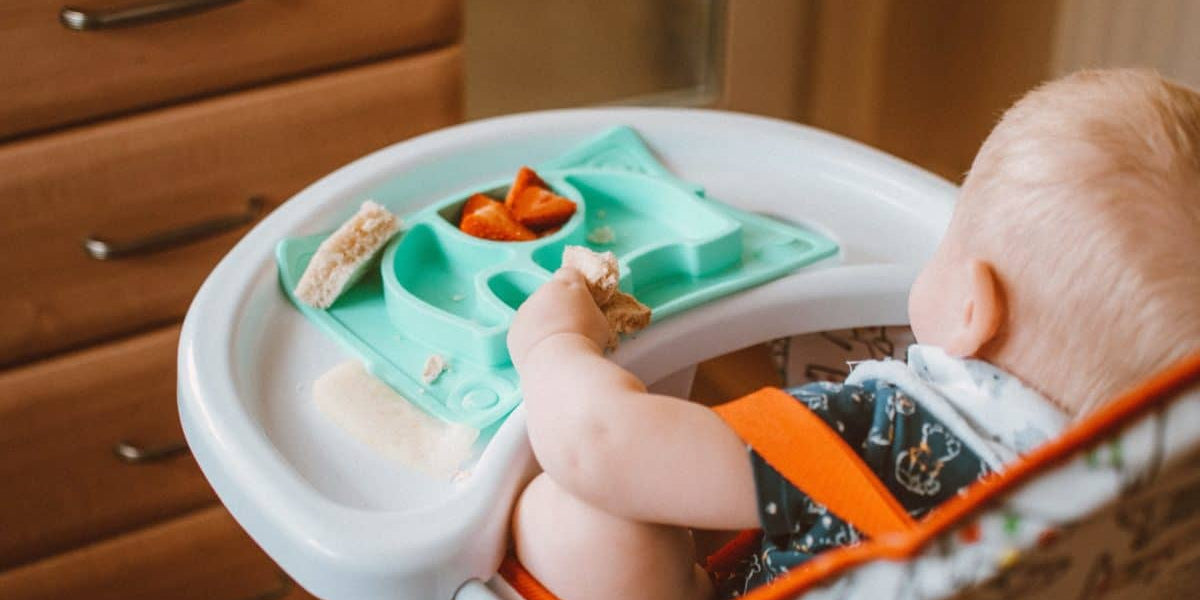It is natural for parents to worry about their child’s nutrition and want them to eat a diverse and colorful diet that provides them with all the proper nutrients they need to grow and thrive. Unfortunately, it can be confusing sifting through the vitamins and supplements presented to us at the grocery store, and picky eaters can cause lots of undue stress for parents concerned that their child is not eating what they need to develop properly. Hopefully, this article can serve as an easy guide to help you choose essential nutrients for your child at every stage of his or her life.
Most important nutrients for newborns
The fail-proof way to make sure that your infant is getting adequate nutrition is to breastfeed. Breastmilk provides all of the necessary vitamins, minerals, and macronutrients that your baby needs to grow (1). The one exception to this is vitamin D, which breastfed babies must take in supplement form. Of course, some mothers can’t breastfeed while others choose not to. In this case, it is important to find a formula that is high quality and comprehensive of your baby’s needs (2).
Most important nutrients for toddlers
Toddlers are going through huge amounts of growth and development, so they must get proper nourishment. Some of the most important nutrients for toddlers include calcium, iron, vitamin A, and vitamin D. Calcium and vitamin D help children to develop strong bones and teeth. You can find calcium in dairy products, fortified dairy alternatives, and leafy greens. Vitamin D usually comes from the sun but can be found in oily fish and fortified drinks like orange juice. Vitamin A is important for good vision and the immune system. You can find Vitamin A in many fruits and vegetables like carrots, peaches, and broccoli. Iron is needed to help make hemoglobin, which transports oxygen in the bloodstream. Iron-rich foods include red meat, beans, and fortified cereals (3).
How to spot deficiencies
Kid’s that are picky eaters may be missing out on some key vitamins and minerals, leading to deficiencies. Like iron deficiency, some deficiencies, which can lead to anemia or vitamin B-12 deficiency, have easy to notice symptoms.
These can include fatigue, dizziness, and weakness. Unfortunately, other deficiencies like calcium and vitamin D deficiencies do not have apparent symptoms but can do long-term damage to the body (rickets in children and osteoporosis in adults) (4). It is reasonable to see your pediatrician if you are worried that your child may not be getting all of the nutrients that they need, as they will be able to diagnose a deficiency and correct it. The best that you can do as a parent is to encourage a diverse and healthy diet for your child with lots of fruits and vegetables! For parents of picky eaters, ChildLife Essentials great-tasting vitamins offer a great-tasting solution to help fill in those nutrient gaps.
References
- Medline Plus. Infant and Newborn Nutrition. Retrieved from: https://medlineplus.gov/infantandnewbornnutrition.html
- Ben-Joseph EP. KidsHealth. Breastfeeding vs. Formula Feeding. Retrieved from: https://kidshealth.org/en/parents/breast-bottle-feeding.html
- Whaley DK. Boys Town Pediatrics. Nutrients for Toddlers. Retrieved from: https://www.boystownpediatrics.org/knowledge-center/toddler-nutrition
- Olsen N. Healthline. Nutritional Deficiencies (Malnutrition). Retrieved from: https://www.healthline.com/health/malnutrition#causes



